Amnesia: Rebirth Review – Glory Restored

Developed and Published by Frictional Games
Available on PS4 and PC (reviewed)
MSRP $30
When Amnesia: The Dark Descent hit stores in 2010, it shifted the landscape of horror in a way that lasts to this day. Outlast, Layers of Fear, Slender, and countless others all owe their success to the foundation laid by Amnesia. Horror at a time when horror was becoming more and more action-focused. Frictional Games sought to take things in the complete opposite direction. No guns, no combat, just running and hiding. It was a perfect fit for Frictional’s proprietary HPL Engine, which had the player moving objects manually by clicking and dragging. That extra second or two to undo a latch, open a door, or turn a lever made the game’s relentless enemies infinitely more terrifying.
Frictional Games would go on to follow Amnesia: The Dark Descent with SOMA, one of the greatest and most thought-provoking horror titles of all time. It solidified Frictional Games as a landmark horror studio capable of delivering multiple hits. However, the first Amnesia sequel was considerably less well received. Developed by The Chinese Room (best known for Dear Esther), Amnesia: A Machine for Pigs was considered by many to fall short of the original’s. So with Frictional returning to the helm with Amnesia: Rebirth, can they rekindle that spark that made the original a beacon in the dark and dingy corridors of indie horror? Or is the franchise not fit for new life?
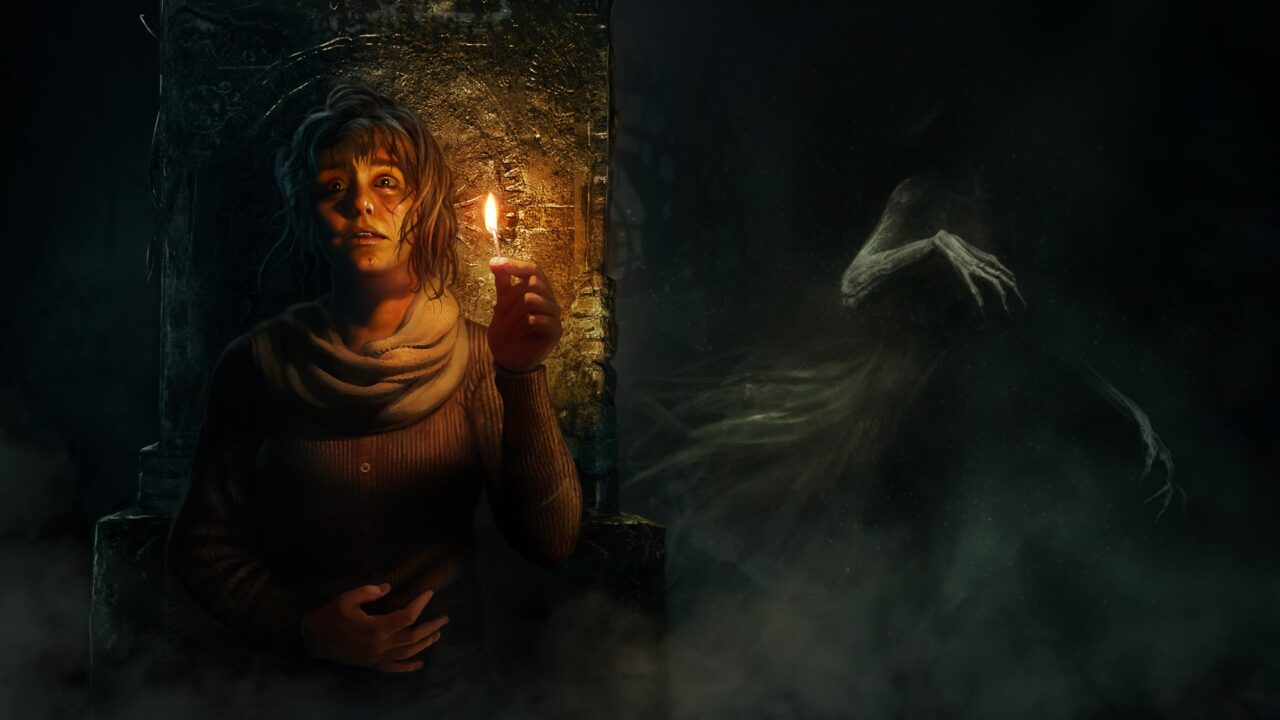
In Amnesia: Rebirth, you take the role of Tasi Trianon. A member of a mining expedition to Algeria, Tasi awakens in the ruins of their crashed plane deep in the desert. Afflicted with the game’s namesake amnesia, she must travel through the desert in search of aid. She quickly finds the remnants of the party, though it becomes abundantly clear that a few days have already passed. You’ll have to piece together various notes and contextual clues to piece together what happened and find the route to safety.
I’ve become more cavalier about spoilers in my old age, but I’ll do my due diligence and stop talking about the plot for the time being. It’s pretty impossible to talk about any of the game’s meat without revealing some key plot elements. So before I get into all of that, I’ll recap the gameplay the best I can. If you’ve played Amnesia (or any of the games it inspired), you should be familiar with the basic mechanics. You poke around various long dark hallways, lighting candles and lamps with your limited supply of matches. Each area is spiced up with a few puzzles and infrequent enemy encounters. These encounters come in the sneak around things and run away from things variety. Puzzles all require a mix of physical manipulation and deductive reasoning based on environmental clues. It’s nothing new, but a tried and true formula that is no less effective in Amnesia: Rebirth.
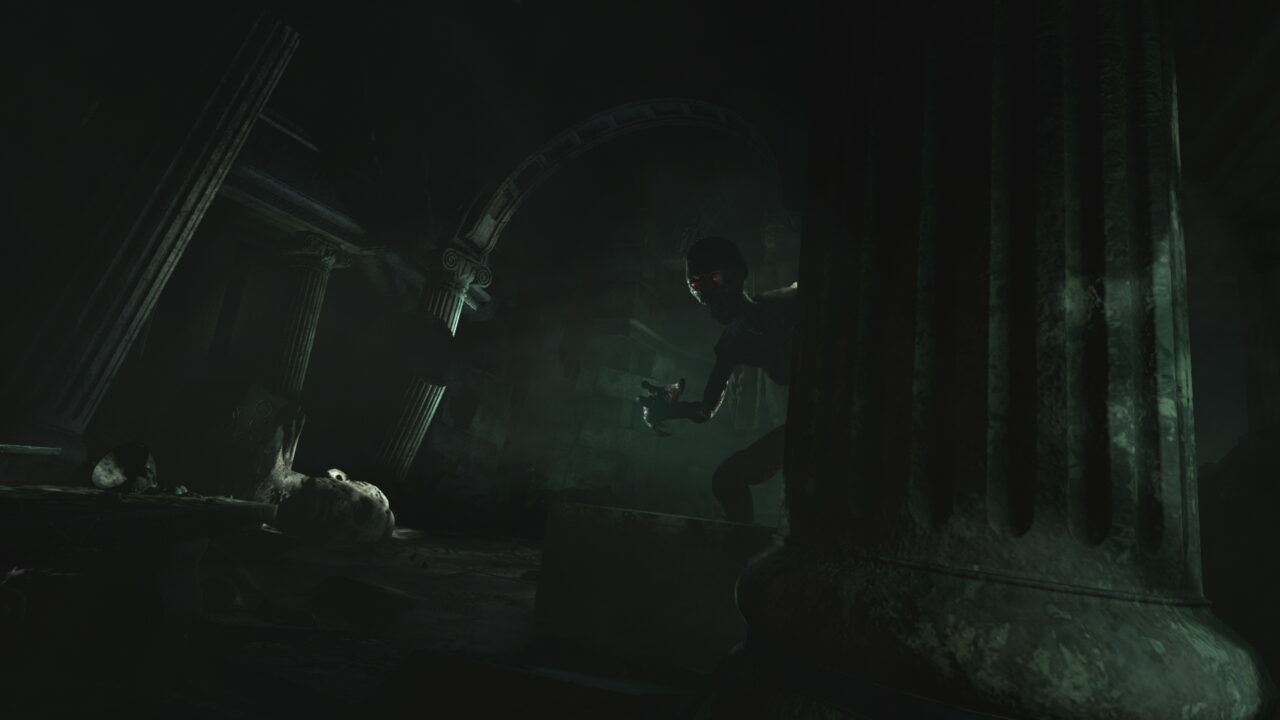
The major alternation to the formula comes from the game’s fail-state. Amnesia: Rebirth doesn’t have a traditional health or sanity bar. Instead, a creeping darkness will envelop the screen when Tasi is afraid. Just about everything involving monsters increases your fear. Sneaking by them, sitting in the dark, looking straight at them, you name it. Getting caught also increases fear, but also gives you a chance to smash the keyboard to escape. If your fear gets to high, Tasi is possessed by an evil spirit and sent back to the previous checkpoint. However, this also usually causes the pursuing enemy to despawn. Now, I’m not sure if this is the case for every encounter (or if some encounters require multiple failures to remove the monster), but it’s a rather novel way to deal with gating the difficulty in your games without implementing a toggle. Hardcore players will want to get through it all without getting caught for their own pride, while more casual players should be able to just headbutt that brick wall until it crumbles.
Tasi is also equipped with a magic amulet that allows her to pass through dimensional portals. Despite how it sounds, this isn’t a big part of the game. It mostly just serves as a transition between levels. I really imagined that it would serve some kind of vital function in warding off bad guys or pulling materials through space and time for trans-dimensional puzzle solving. But no, it’s really just a fancy way to activate scene transitions. You’ll spend about half your time in Algeria and half on the alien homeworld. While there’s a significant visual distinction between the two, the gameplay is the same.
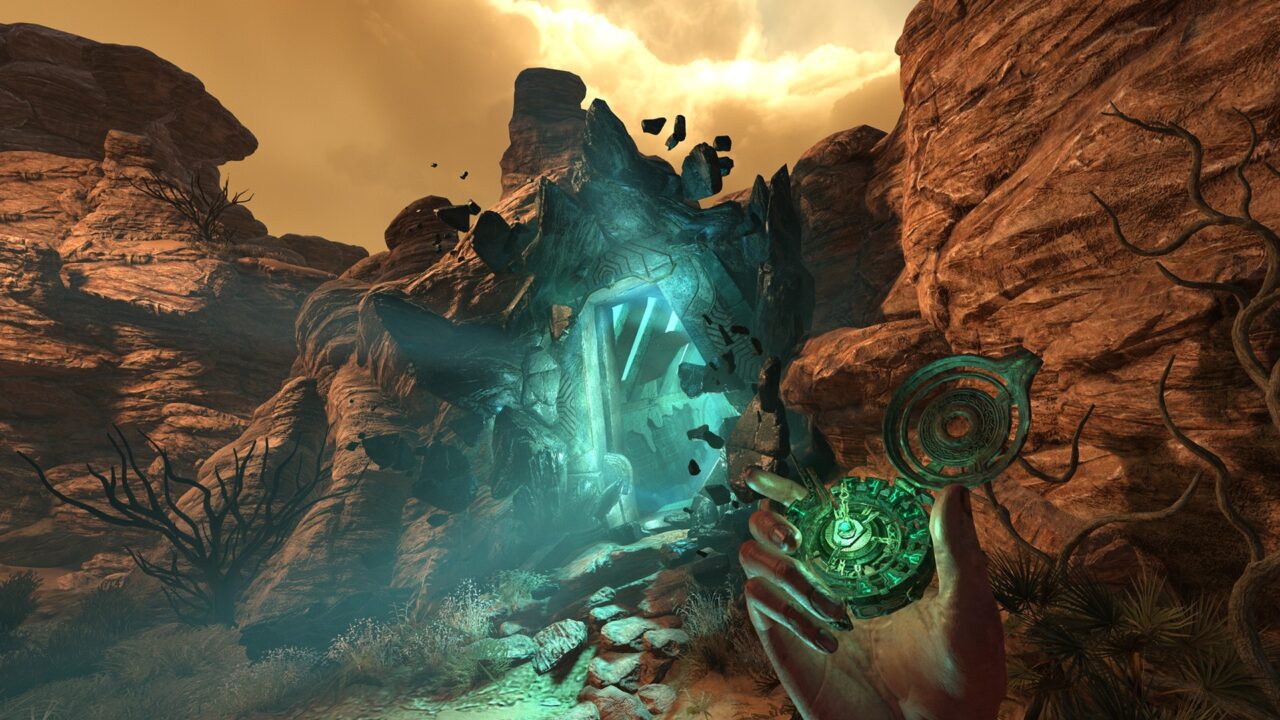
It’s also not much of a spoiler to mention that this game is an actual sequel to the original Amnesia: The Dark Descent. While the cast is all new, the characters and events of the first game are mentioned in Amnesia: Rebirth. The events of Dark Descent aren’t consequential to the happenings in Rebirth aside from a few lore notes. The connection mostly just helps paint the picture of a larger world. I played through the whole thing a friend that had never played either of the previous Amnesia games and they had no issue keeping up with the story.
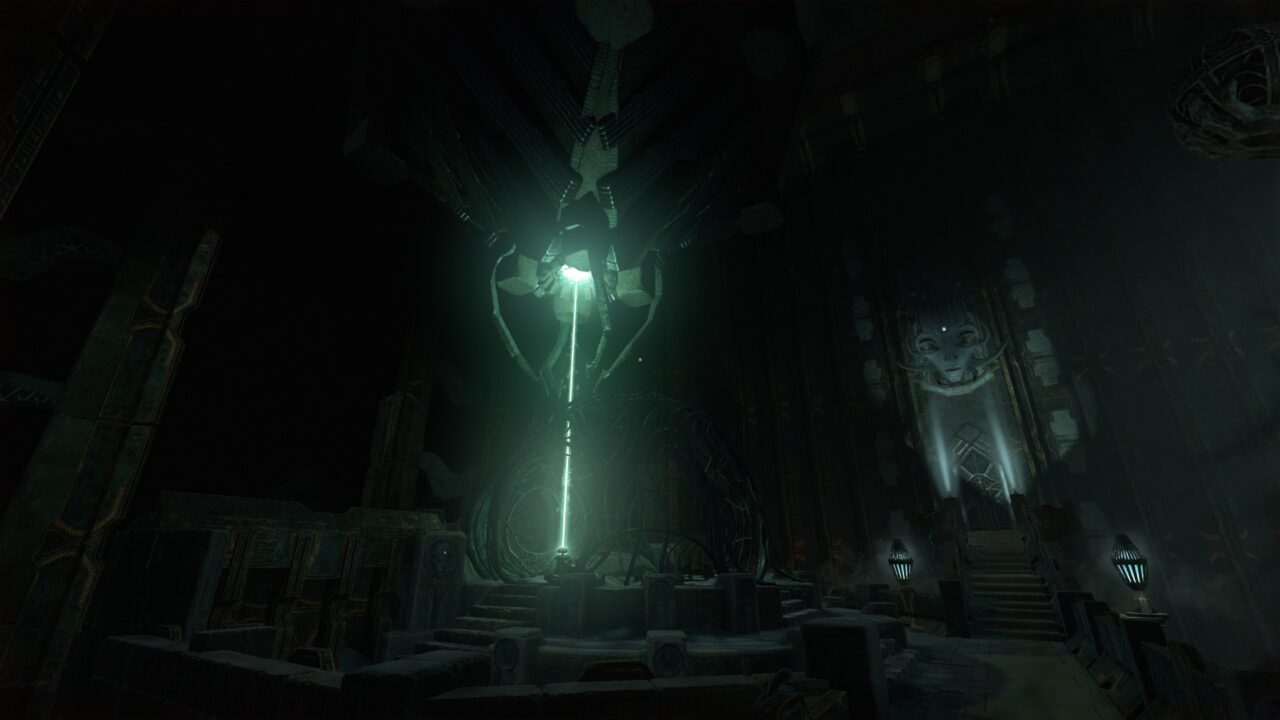
That is really all I can talk about without getting into SPOILERS! If you do not want the plot of Amnesia: Rebirth SPOILED, then please skip to the next break.
*SPOILER ALERT*
Amnesia: Rebirth‘s big twist is that Tasi is pregnant. This is revealed early on and becomes core to the story and gameplay. How is a woman being pregnant a big spoiler? Shouldn’t it be kinda obvious? Well, the trans-dimensional teleportation causes Tasi to go from being barely pregnant to full-term in the course of about a day. How does it do this? With… vague… time magic. It doesn’t really make sense. A lot of the core plot doesn’t make sense. I might have missed the note for this, but it’s unclear how Tasi wound up in the plane at the start and how she lost her memory. We do eventually learn what happened to her and her companions before the game starts, but as far as I know this fundamental question was never sufficiently answered.
The pregnancy serves more than just a narrative role. Tasi’s unborn child serves to comfort her when things get too spooky. Rather than chugging Laudanum to keep the screen from shaking, Tasi can nestle her unborn child to keep calm. It’s a novel concept, giving you an infinite supply of sanity at the cost of having to sit still and rub your belly. Cowering in a dark corner, hoping that the monstrous horror stalking the halls doesn’t find you is the bread and butter for these types of horror games. Rather than just staring at the wall, Amnesia: Rebirth gives you something to do. It’s a natural perfect fit that simultaneously raises the stakes, increases engagement, and removes the need for consumable sanity items. It’s a brilliant mechanic.
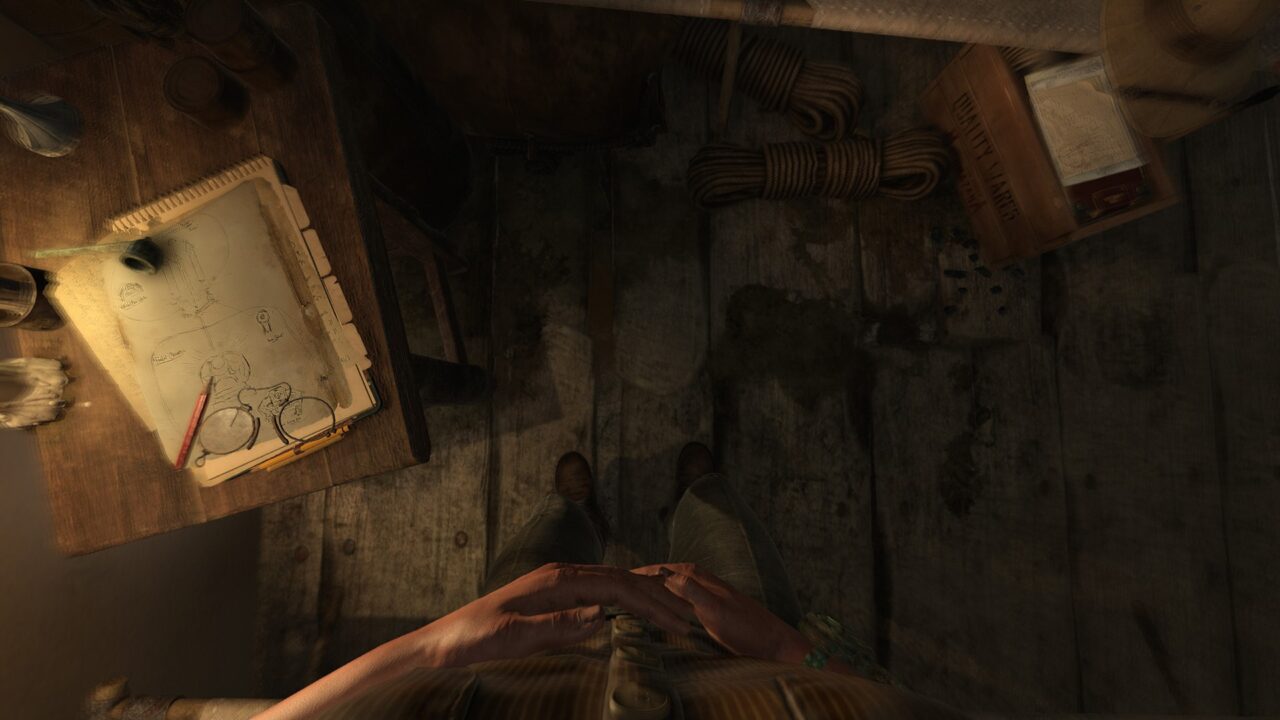
Unfortunately, there’s some disconnect between the world that they are trying to illustrate and the one we actually see. Some time ago, the alien’s network of torture-energy was sabotaged. This screwed things up enough to cripple their empire, but not enough to completely destroy it. The monsters you see throughout the game are warped by this corruption into fear-hungry shades. You’ll sometimes see these shades when sneaking around the various “factories” that torture captured humans to extract pain. However, it’s pretty unclear just how alive or close to collapse this empire is. It’s clear that they still collect humans to convert into magic life-juice. However, the bodies of the saboteurs are still just lying around with their chemical weapons in hand. Did this sabotage happen yesterday? Or 100 years ago? If so, are there normal aliens just going to work and stocking the grocery stores? I get that we don’t want to waste budget and time exploring a digital alien Walmart, but we never get any sense that there is a larger alien society outside of the torture-plants. While this might sound like a minor gripe (and it is), it does significantly color how I considered my choices for the ending.
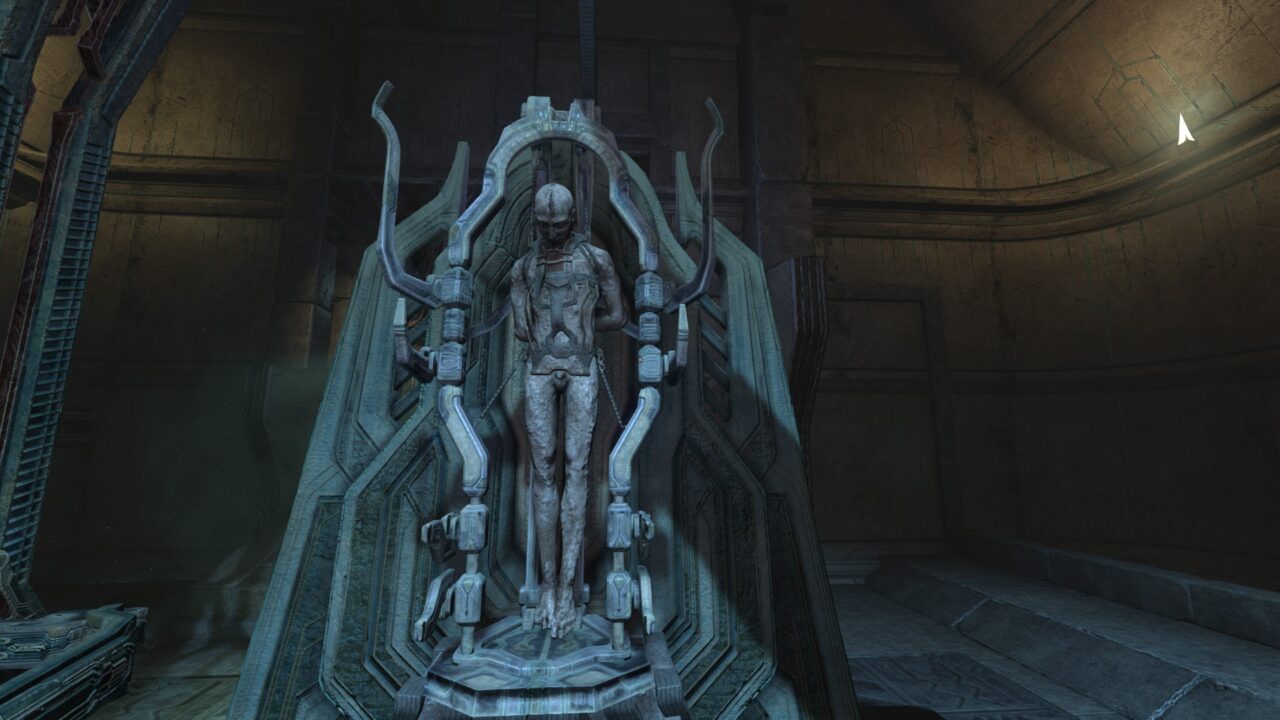
I found the overall plot of Amnesia: Rebirth to be less compelling than Frictional’s previous two games. The decision to give Tasi some narrative weight through her unborn child is admirably bold. Rebirth also succeeds in satisfyingly expanding the universe established in The Dark Descent. By grounding that expanded world in the struggles of one mother and her unborn child is a great idea. The rub comes from how the two are practically implemented. The game is too short (about 6-8 hours) for me to really grow attached to the life growing inside of Tasi. It doesn’t really give you the time or reason to grow attached to the child. All we have is Tasi clutching her belly and stating over and over that it’s her goal to keep the unborn life safe. We do get some effective backstory as to Tasi’s previous child and her tragic end, but all that does is further explain why TASI cares. It doesn’t make ME as the player care. More time with the child would have worked wonders on giving the ending more weight.
*SPOILER SECTION OVER, RESUME SPOILER-FREE READING*
Aside from the plot gripes I covered in the spoilers-section, Amnesia: Rebirth is still an exceptional example of why the Frictional formula is so effective. I spent most of the 7 hour runtime on the edge of my seat. The new monsters are genuinely terrifying. They aren’t as grotesque as The Dark Descent‘s Gatherers, but their omnipresent hunger and lingering vestige of humanity easily makes up for it. Meanwhile, the hovering alien shades might be the most terrifying horror foe since the chainsaw guy in Resident Evil 4. The new environments also do wonders to increase the scale and variety of levels. You’ll travel from cramped tunnels and buildings to sprawling alien vistas and monolithic towers. Bright open deserts are juxtaposed by shadowy and treacherous corridors. Still, everything feels contained and focused enough that you should always be able to figure out where you are going. It’s linear enough that you should rarely if ever get lost.
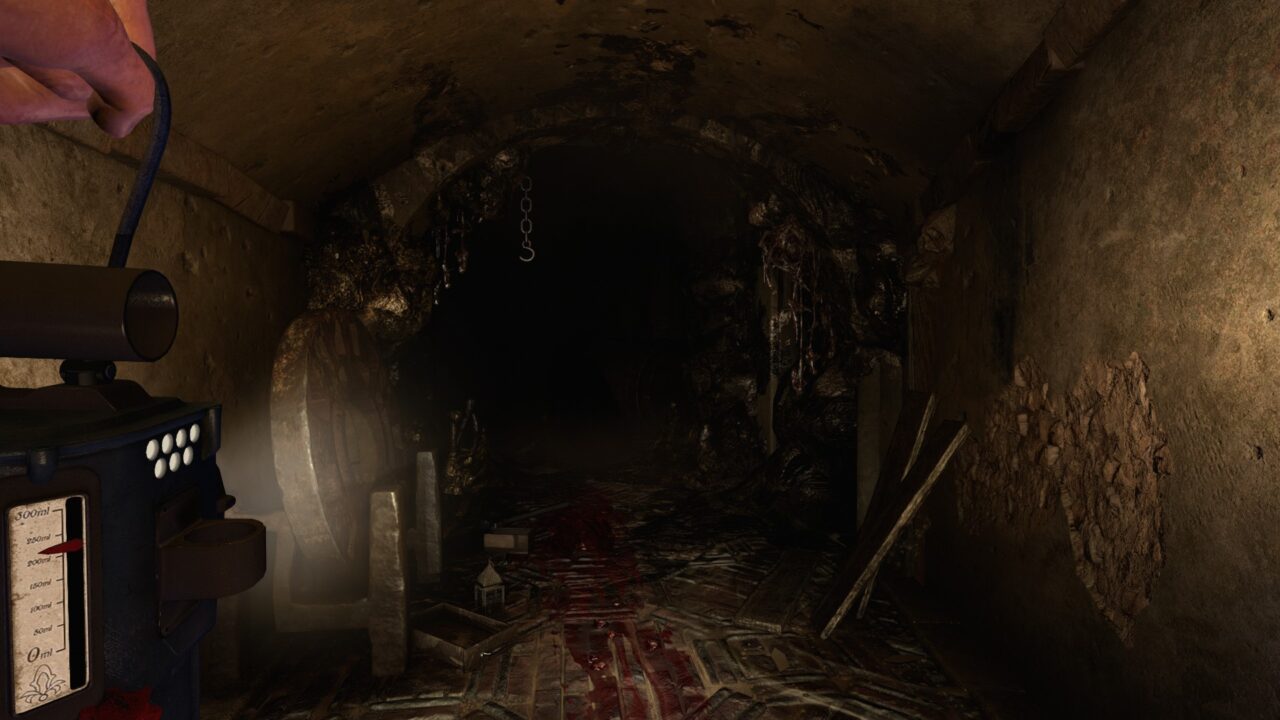
Amnesia: Rebirth is an excellent example of how to expand the scope of your fictional world without undercutting the events of previous games. So often games get caught up in the perpetual cycle of coming up with ever-higher stakes and badder bad guys. Rebirth manages to introduce a new big antagonist without diminishing the events of The Dark Descent (or A Machine for Pigs, I guess). That being said, I feel like Rebirth is an inferior personal narrative when compared to both Dark Descent and SOMA. While I enjoyed Tasi, she doesn’t really have any connection to the events of the game other than just being there. There’s no grand twist or reveal to give you a next-level understanding or make you reevaluate your mission. It’s not bad by any stretch of the imagination, and shouldn’t discourage you from getting the game. Amnesia: Rebirth is still a fantastic entry into the hallowed halls of survival horror, well worth of the name it carries.
You can buy Amnesia: Rebirth now on PS4 and PC. Click here to check out the game’s Steam store page!
-
Amnesia: Rebirth
Categorized: Horror Gaming Reviews
